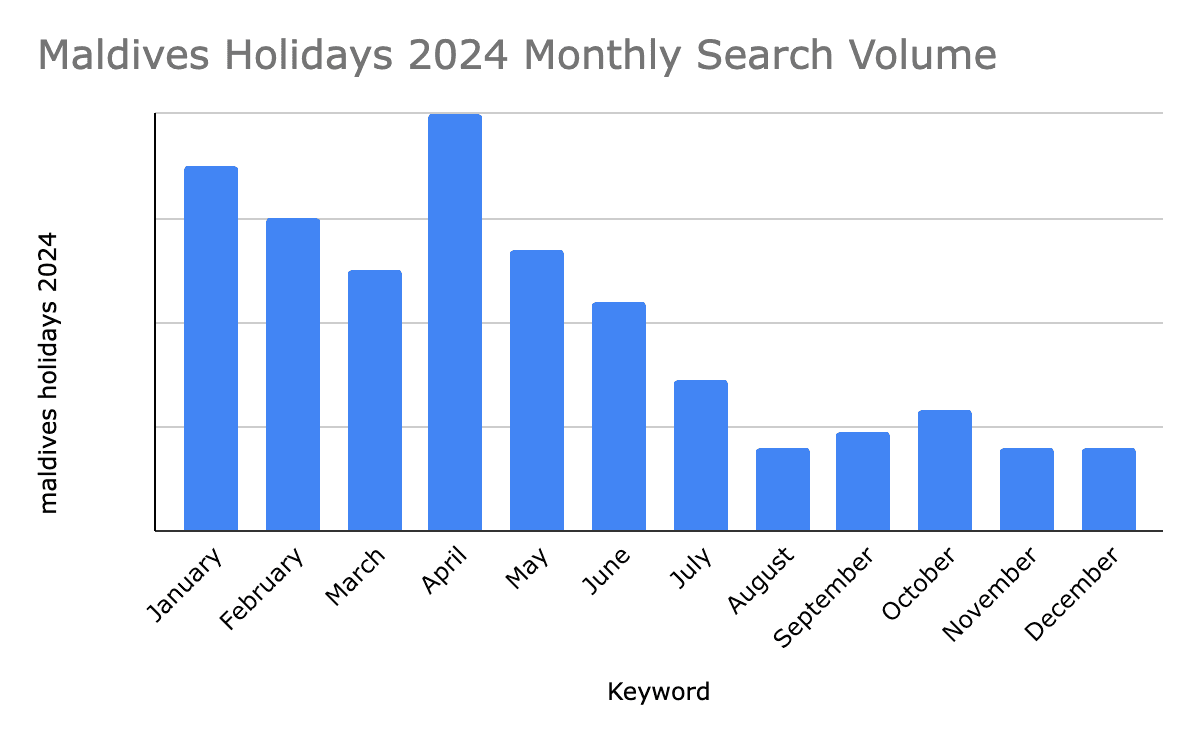How to Prepare your Travel Business for January Peak
Monday, November 25, 2024
HC

Written by
SEO Exectuive
Within the travel industry, January is a month that traditionally marks peak interest for holiday bookings. With a large proportion of consumers recovering from the post festive blues, they can’t be blamed for wanting to plan their next getaway to have something to look forward to.
In 2023, 72% of travellers said they preferred to book their trips online, compared to only 12% that preferred using a travel agency (TravelPerk). This reiterates the fact that this period offers great opportunities for online travel companies. However, to capitalise on this January rise in interest, it’s important to have a pre planned SEO strategy in place to ensure your digital presence is strong.
This blog will run through a number of actions you can take to ensure you are in a positive place when January comes around.
Number 1: Audit your website now
Before the January rush, a thorough audit of your website is key to make sure your pages load quickly, are mobile friendly and are free from technical errors, this will allow your site visitors to have a smooth and hassle free user journey, increasing the chances of higher engagement with your site over your competitors.
In the travel industry, paying close attention to meta titles and descriptions is important to ensure your listings appear relevant in the SERP. Crafting enticing meta descriptions that highlight key offerings, such as "luxury beach holidays", "last minute city breaks" or "family friendly getaways" can capture users’ attention and inspire clicks. By aligning with user intent and showcasing your unique selling points, you can effectively boost click through rates and drive more traffic to your travel website.
Regarding on site factors in the travel industry, using optimised imagery with descriptive alt text, such as destination highlights or accommodation features, improves accessibility and helps search engines better understand your content. Additionally, strategically placed internal links can guide users to high converting pages, such as seasonal offers or travel packages, improving the user experience and increasing conversions.
Number 2: Refresh and optimise content for trending keywords
January often brings a surge in searches for holidays for that year, for example ‘Maldives holidays 2024’ received its second highest number of searches in January 2024, behind April (SEMrush.com).

Tools like SEMrush or Ahrefs are great to identify relevant keywords with high search volume in specific months, allowing you to integrate these keywords strategically into your content. For example, by creating blog posts to increase traffic to your site using strong intent queries, for example, “How to beat the January blues with these exotic travel ideas”, “Why January is the perfect time to book your summer holiday” or “January deals you can’t miss in 2024”. You can also update destination pages with fresh, keyword rich content to ensure you are ranking for relevant queries.
Number 3: Prepare for peak advertising demand
In the 45 days leading up to booking a trip, travellers dedicated over 5 hours to exploring online travel content for inspiration and trip planning (TravelPerk). Demonstrating that it is key to plan and schedule your paid search campaigns now so they are up and running and ready to capitalise on the January peak. The campaigns should focus on:
Retargeting past website visitors.
Targeting high intent keywords related to January travel.
Utilising ad extensions to showcase deals and highlight USPs like “flexible cancellations” or “early bird discounts.”
Number 4: Strengthen your mobile experience
The mobile travel booking market is projected to grow by £484.5 billion by 2031 (TravelPerk). With the majority of users browsing on mobile devices, it’s crucial to ensure a seamless mobile experience. Optimise page load speeds, improve navigation and test forms to make sure your mobile experience doesn’t prevent any conversions.
Number 5: Monitor and adapt in real time
January is dynamic, with travel trends shifting rapidly. Use tools like SEMrush and social listening platforms to stay ahead of consumer preferences. If a particular destination or travel type sees a spike in interest, adjust your strategy accordingly.
Conclusion: Act now
January’s peak travel season presents a golden opportunity for travel companies to attract and convert a high volume of users. By acting now and implementing these SEO strategies, you can ensure your website is visible, user friendly and ready to meet the demand.



